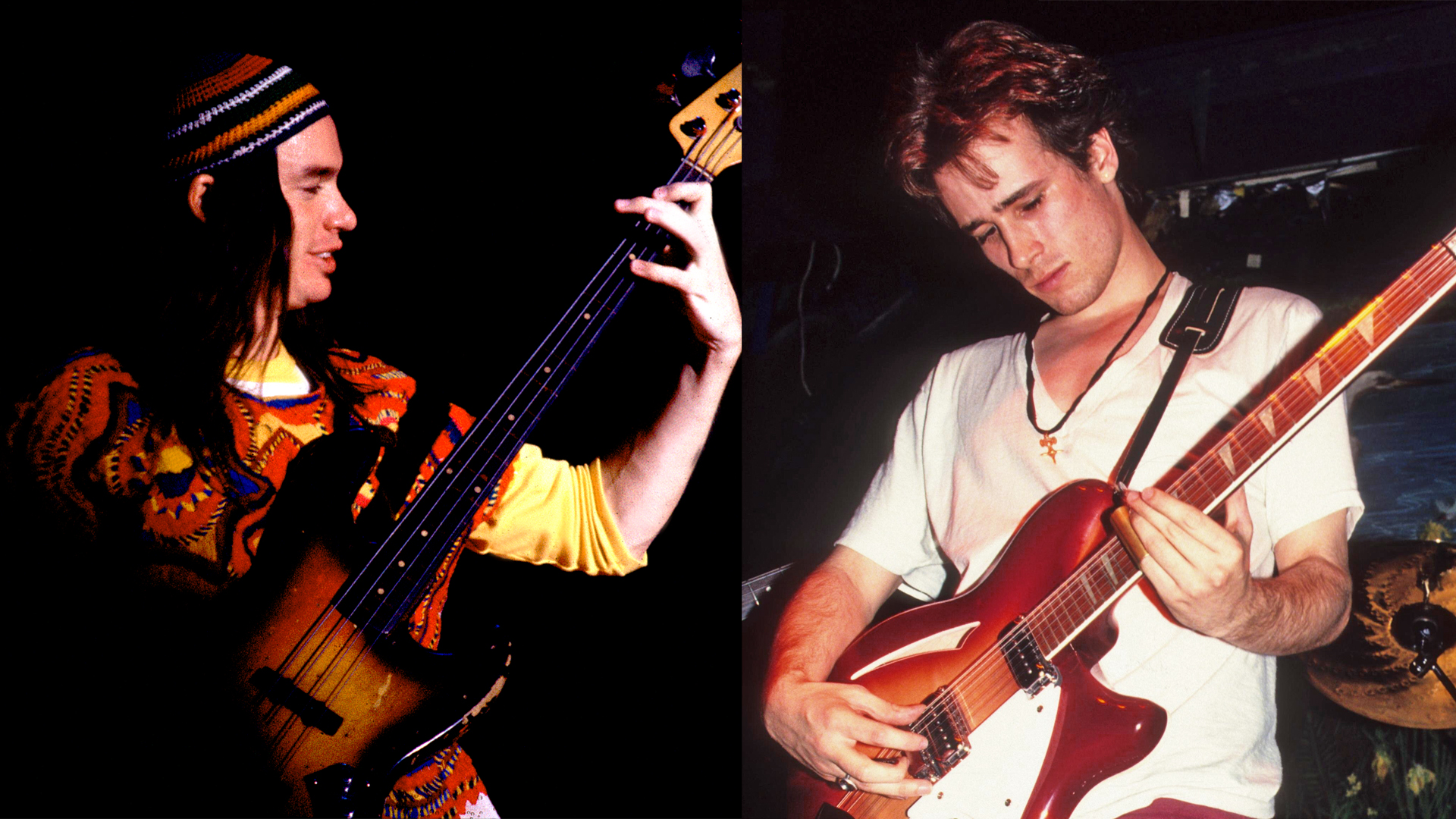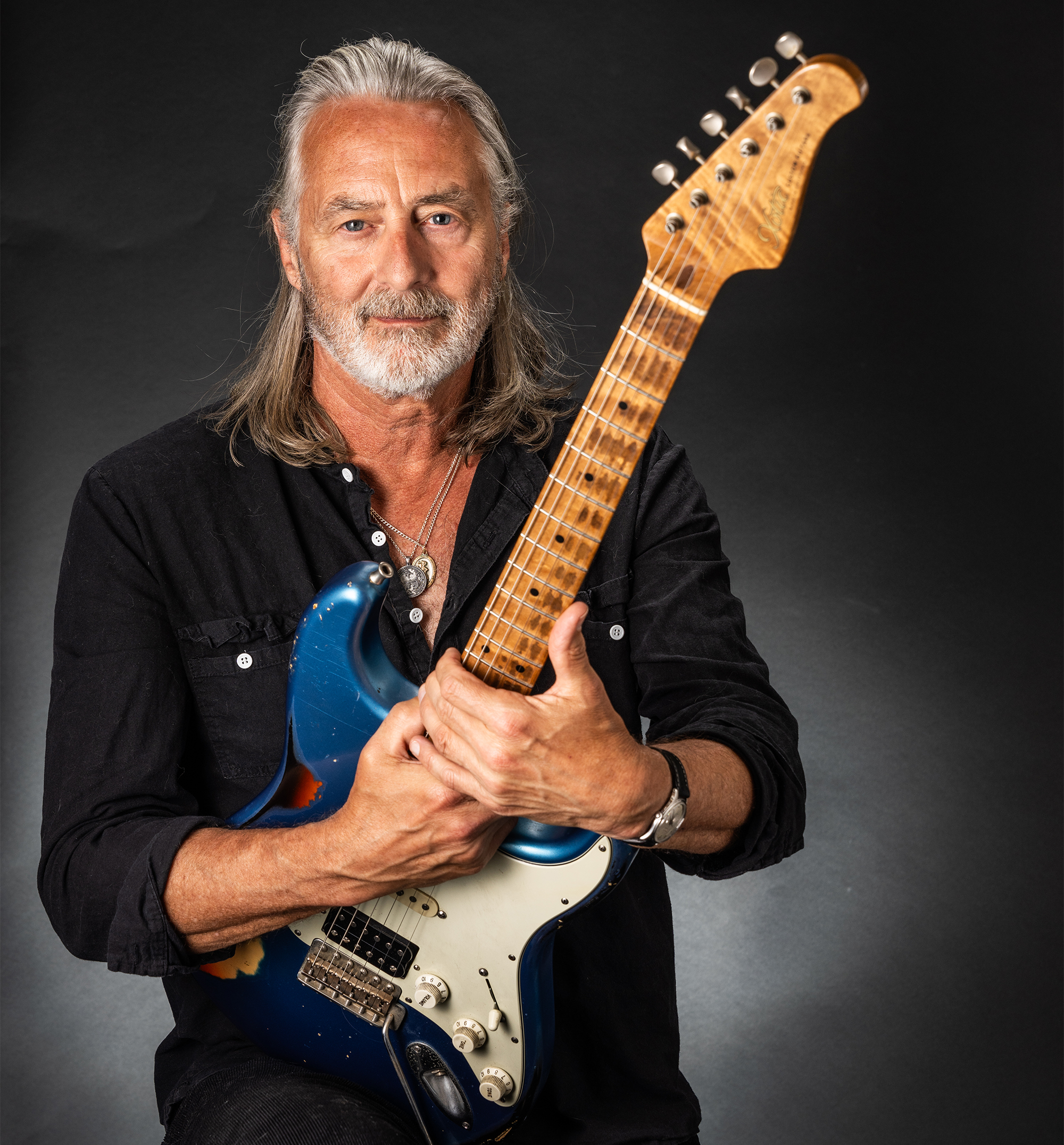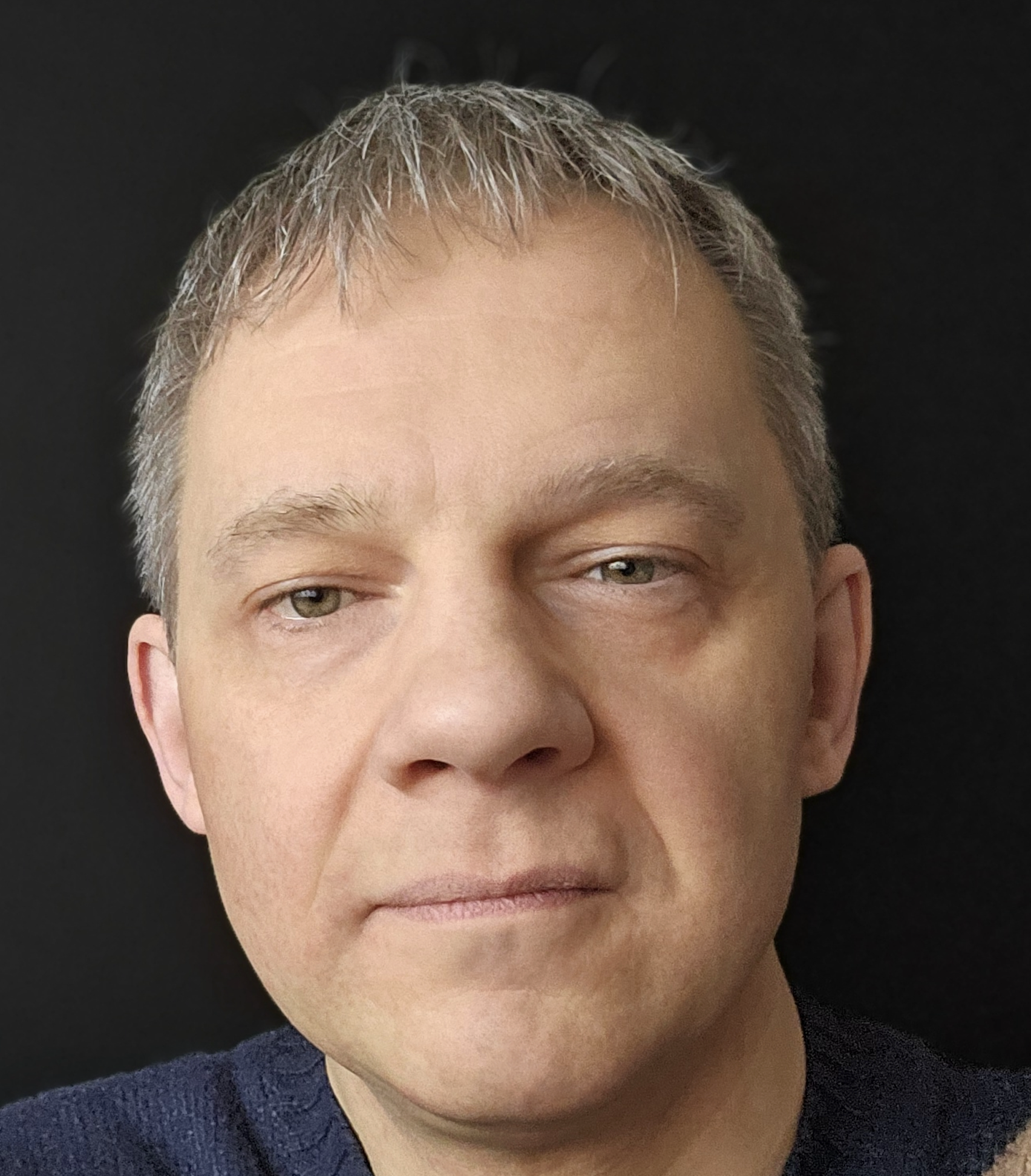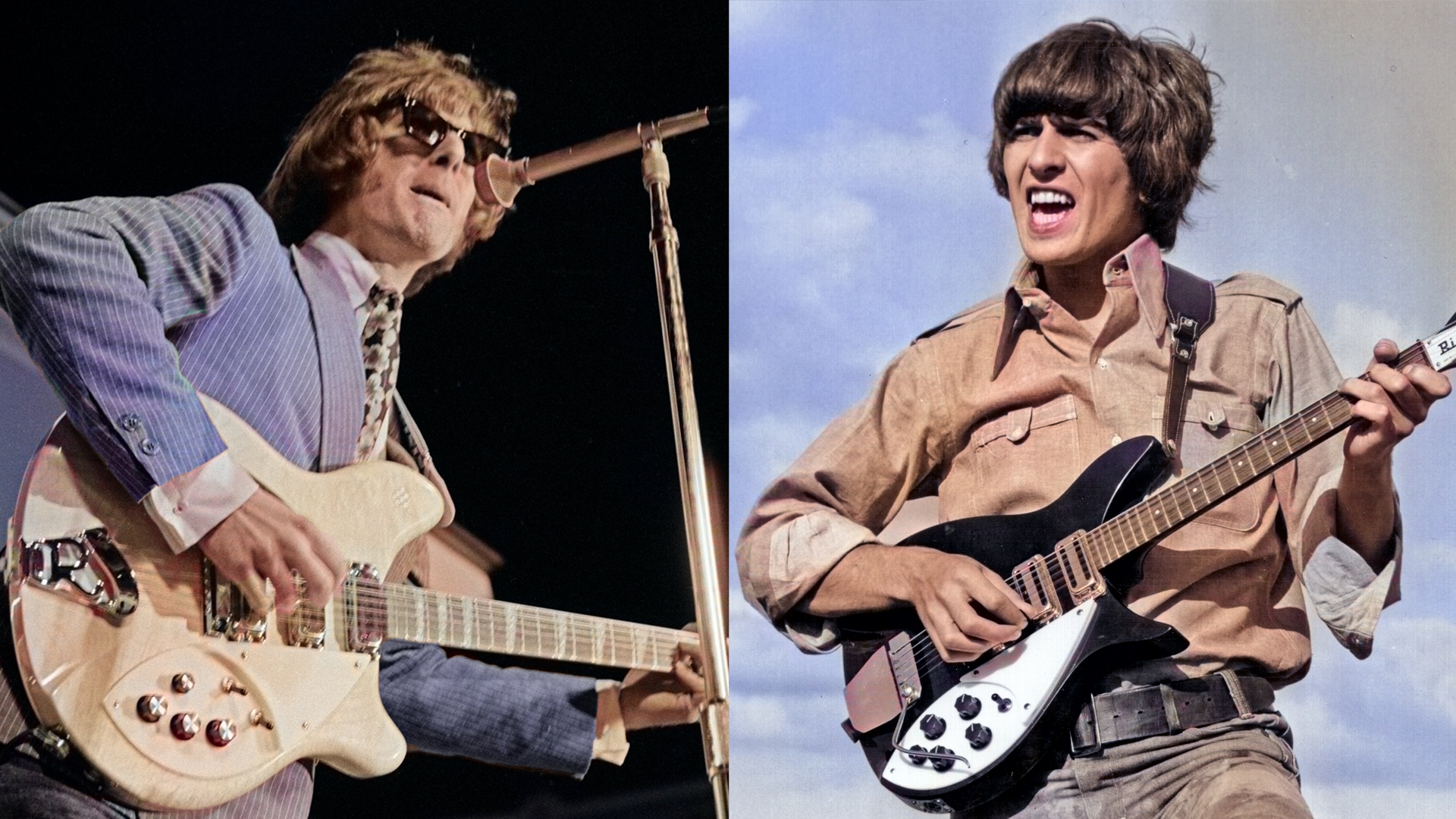“I said, ‘What happened?’ He said he just got really nervous. Crazy, considering his future.” Allen Hinds on Jeff Buckley’s guitar genius, and his “stupid” question to Jaco Pastorius
L.A. legato master Allen Hinds reflects on his Musicians Institute years with Buckley, Scott Henderson, Don Mock, Joe Diorio and other guitar greats

All the latest guitar news, interviews, lessons, reviews, deals and more, direct to your inbox!
You are now subscribed
Your newsletter sign-up was successful
Allen Hinds is nothing if not well grounded.
He's been an A-list sideman for artists like Gino Vanelli and Randy Crawford, a long-serving tutor at MI/G.I.T, and a solo artist with eight albums to his name. His playing — performed largely on custom Xotic California Classic electrics (XSC-AH and XTC-AH) — is an exquisite mix of southern rock sass and tasty legato fusion blues, enriched by a bridge-pickup biased tone that is lauded the world over.
With all this accounted for plus the popularity of his insightful legato technique lesson, it was time for us to talk.
From his experiences at L.A.'s famous Musicians Institute, Hinds discusses his early student years to becoming a sort after tutor. He reflects on his friendship with Jeff Buckley, taking lessons with fusion virtuoso Scott Henderson, meeting bass guitarist Jaco Pastorius and his unexpected dep gig for Steve Morse in the Dregs.
And as someone who has spent much of his life teaching and mentoring guitarists from around the world, he shares his views on what are the most vital elements to becoming a great musician.

You were at MI at the same time as Jeff Buckley. What was he like as a student?
Back then, MI — or G.I.T. [as it was originally known] — was only a one-year school. New classes came in every six months. I came in halfway through Jeff's time there.
I'm a pretty silly person sometimes and I keep things light, so Jeff and I got along partly because he was silly too, but we also loved Led Zeppelin. And there we were, in a progressive school, trying to learn how to play over jazz changes. As you do in schools, like-minded folks would sanction off from the others.
All the latest guitar news, interviews, lessons, reviews, deals and more, direct to your inbox!
I would say Jeff was one of about 10 guys that could really play. He had great time and facility. He was into Allan Holdsworth like us all, and because his time was so good he could really pull it off. But there was always a sense that that was not what he was after. He was 10 years younger than me and he could play incredibly well, but that particular skill seemed not to be his real passion, even though he did it so effortlessly. I remember he was easy to make laugh and he was a bit shy.
One time, there was a jam we had: If a performance room was empty, you could just get in and start playing. It was me, Jeff, bassist Jeff Berlin and a great drummer and friend named Rory Flores. We were playing "Footprints" by Wayne Shorter. Because of the level of the band, students started to gather until the room was almost full. But in the middle of his solo, Jeff just stopped playing.
Afterwards, I said, “What happened?” He said he just got really nervous. Crazy, considering his future.
Jeff was into Al Di Meola’s playing with pieces such as "Race With Devil on Spanish Highway." Did you see him play much like that as his albums don’t show this?
We were all trying to copy any guitar heroes’ chops to see if we could play like them. I remember that but I remember that Jeff was more into Weather Report, Allan Holdsworth and Led Zeppelin.
"Listen to Joni Mitchell, Led Zeppelin, The Beatles and Stevie Wonder, and learn their songs. If nothing else, it will bring you great joy!"
— Allen Hinds
Who else was at MI when you were a student?
These were really golden years. You could walk down the hallway any given day and on your left and right would be Joe Diorio, Robben Ford, Jennifer Batten, Scott Henderson, Frank Gambale and Jeff Berlin. Student-wise, Oliver Wood was there from the Wood brothers and Jimmy Herring. But really, there were many really great players from all over the world.
What musicians at MI inspired you the most as a student?
Probably Scott Henderson, Robben Ford and Joe Diorio. All for different reasons.
What musical insights did you gain from Scott Henderson?
Scott was the first person to explain how melodic minor modes could be used just as Major scale modes, relative to each other. I would sit with Scott everyday, but Jeff Buckley didn’t. Jeff was a little shy and scared of Scott’s style of teaching and playing. But maybe he just had a premonition that that playing style wasn’t for him.
And from Don Mock?
Don was so nice to me. I was in awe of his complete mastery of the fretboard. He knew I wasn’t an alternate picker like so many were, but he thought that was cool. He was a great hang, a great person just to be around, easy to make laugh.
Joe Diorio was a fantastic jazzer. What was your time with him like?
From Joe I learned the lesson to follow your crazy imagination as far as you can. He was so open to everything, and he would take a concept and run with it with no fear. I loved his imagination. He was a great guy, before he left we regularly had lunch together.
"I encourage songwriting over chops building."
— Allen Hinds
Howard Roberts was a very important part of MI and a great session player who could sight read pretty much anything.
I came to appreciate Howard's playing later. At the time he was this icon, with his sunglasses and his philosophy. I never spent much time with him, although he and Tommy Tedesco gave me my job there. At one suggestion meeting they would hold toward the end of every semester, they would gather the student body and ask the students how to make the school better. Someone recommended me as a teacher. Tommy and Howard said '"Who is Allen Hinds?” I stood up and they gave me a gig.
MI is renowned for having many guest performers in. When you were a student, what guests inspired or influenced you the most?
During my first month's there, the Dregs came to play but for some reason Steve Morse could not show. I knew a couple of their songs from my bands in Alabama, so they got me up and I played "On the Pipe." I was terrible, but they were nice.
Robben Ford was a big help, I sat with him every day I could and pestered him. I learned a lot about phrasing and touch.
There was a Jaco Pastorius visit but he wasn’t in good shape really. I asked him a relatively stupid question. I said, “Jaco, which musical experience meant more to you than others?” I wanted to get him away from all the other questions like “What pick do you use?"
He paused and said, “What?!" All of sudden I was under the microscope. I repeated the question, then he said “Look, I have four children and I love them all the same. Same with music." So tail between legs, I went back to my seat.
Within the environment of MI, what are the underlying aspects of getting good as a guitarist?
To me, it was the learning of different cultures as much as anything, all brought together with a common thread, which was the guitar. It was the best year of my life.
What do you think makes MI different now compared to back then?
Like most schools, MI is keeping up with the trends. There aren’t as many guitar solos on the radio as there used to be, as it's fallen a little out of favor. And, like everything, it's much more expensive to attend now. I think a year of MI in the 1980s was about $2,500. Crazy. All that said, there is still a lot of eager and hungry young players that come through and love the school.
What about your dealings with today's students and their aims to improve?
I encourage songwriting over chops building. It encourages a more rounded appreciation of music making, it builds a bigger picture. To me personally, my songs mean more than my licks. That's why I concentrate more on writing than chops building these days.
To be specific, what are the six most important topics that can help guitarists become better musicians (and why?)
One, get over yourself. There are always better players than you. That said, bandleaders would rather have a good hang than be the best player.
Two, don’t make faces when you think you mess up. No one else knows!
Three, write, write, write. At the end of the day, people remember songs.
Four, learn the fretboard. If you practice a pattern, use it: don’t leave it as a practice tool only.
Five, teach others. I find I learn so much about myself by having to reverse engineer what I know. It's healthy and it helps you to grow.
And six, listen to Joni Mitchell, Led Zeppelin, the Beatles and Stevie Wonder, and learn their songs. If nothing else, it will bring you great joy!
Allen’s latest album, The Good Fight, is out now. You can check out the track "Slither," below. The solo section is full of emotive bends, rippling rock fusion lines and tasty blues phrasing.
For more information about Allen, visit Allenhinds.com

Jason Sidwell (BA Hons, MA, ALCM) was editor of Guitar Techniques, is senior tuition editor for Guitarist and has written/edited over 25,000 printed articles since 1998. He is an advisor/guest tutor for UK music academies, a director/tutor for the International Guitar Foundation (IGF) plus author of How to Play Guitar Step by Step (Dorling Kindersley) and tutorials for The Guardian and Observer. His unique Guitar Day teaching events have been running for over a decade. He is also a busy classical guitarist and theatre musician, has recorded with musicians such as Steve Morse, Paul Gilbert, Andy Timmons and Marty Friedman and has a broad cliental for studio work.

